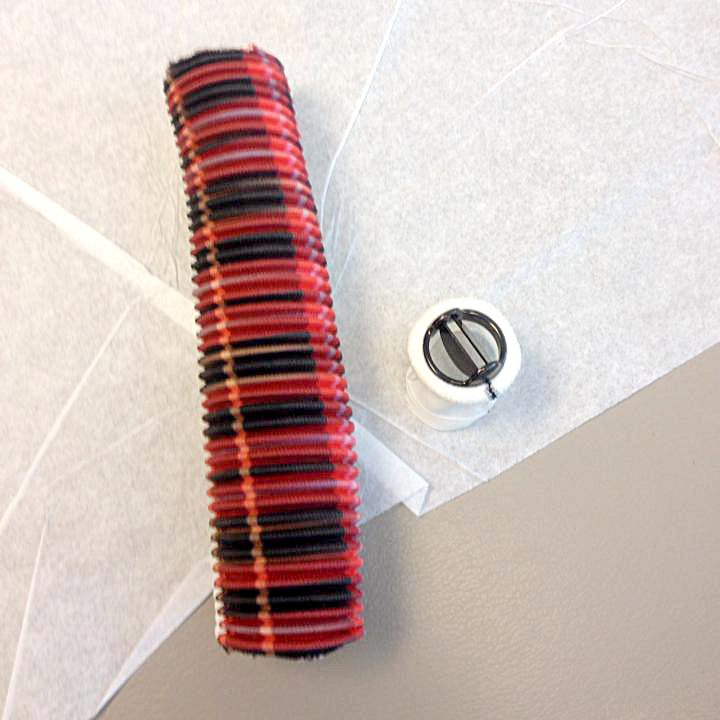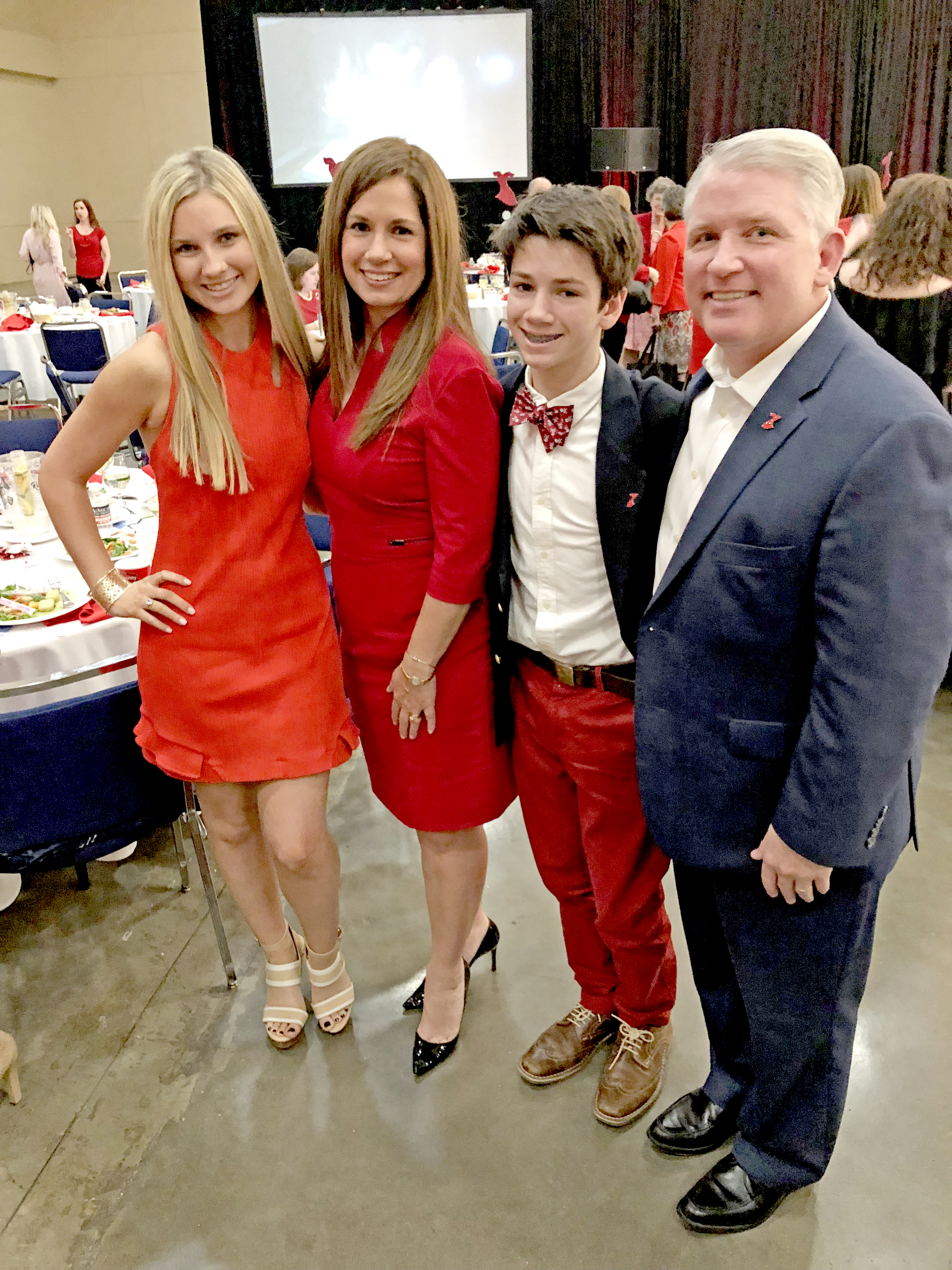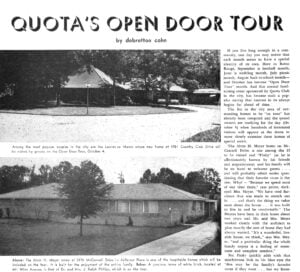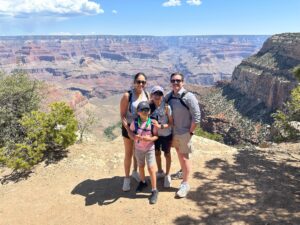Heart to heart: Julie Reynolds’ ‘Operation Ticker Fixer’
For nearly as long as I can remember, going to have my heart checked was part of life. I was diagnosed with a congenital heart defect known as congenital aortic stenosis at six months old. When I was eight years old, a nurse explained it all to me: my aortic valve didn’t open and close as it should and my heartbeat sounded more like a dishwasher than a drum. I knew I may one day need surgery, but it could be when I was “8 or 80.” I always counted on it being 80! The older I got, I did have minor symptoms, but they didn’t truly impact my life.
Finally, the year I turned 40, I noticed I was slowing down. I was sure it was likely just time for some medicine. But my faulty valve had deteriorated and the pressure of the blood pushing through it had increased significantly. That pressure had also created an aneurysm in the ascending aorta. I will not forget the crying in the doctor’s office that day and calling my family and the physician’s assistant who sat with me the whole time. My mind turned into a tornado of thoughts and denial.
Through further testing, the fear increased. I was so scared and mad and worried. It wasn’t like I was having surgery on some body part I could do without. I only had one heart! I had been married for 18 years to Chad. Our daughter Ashley was in seventh grade and our son Grant was in third grade. They didn’t deserve this!
Then the army assembled. We named the medical journey “Operation Ticker Fixer.” Everyone was researching for me. My family and medical friends were investigating top facilities and doctors. Planning for me. Carpools and meals and prayers. They were all set up to be flowing for my family. I kept busy to keep from feeling. Then at night I would unravel and cry and yell. It was ugly. Everyone kept telling me it would all be OK. I really think I needed someone to say, “I’m scared, too.” I know they all wanted to be positive for me.

Once everything was organized, I started to try to get my feelings under control. I desperately wanted to yank my kids from school and spend those few weeks vacationing with them and my husband, but I knew that was selfish and they needed the comfort of routine. I begged Chad to promise to find someone else to marry if I died or was incapacitated. He and the children would need a loving woman in their lives. He never would promise that.
He and I sat together with Ashley and Grant to explain that I might come home all better, I might come home and not be able to talk or walk, or I might not come home at all. I prayed and prayed before that conversation. It has been the most difficult of my life—to look into the eyes of two young children and utter those words.
I started getting relaxation massages. I had Reiki energy work. I was prayed over with a Blessed Seelos relic. I felt so at peace during those times. I also planned a funeral mass for myself. It was a very difficult thing to do, and each decision I made was with my family in mind. I cried when it was over, hoping it wouldn’t be needed for a long time. I began to feel ready for surgery. Still afraid but ready and covered in prayer. Like I had a blanket of prayers wrapped around my body.
Once in Houston, I felt such complete peace and ease meeting my surgeon. He was a confident man who gave all of the credit to God for his talents. I knew this was the right person to literally stop my heart from beating, then cut it open and sew it back together with new parts.
The night before and the morning of the surgery, I was with Chad and my parents but I felt completely alone. Standing in the shower basically sterilizing my body with the medical soap, I felt like I was preparing for a duel. That changed by the time I arrived in the prep room. Alone, I decided to made a quick video for my family. The days of fear had converted into a morning of happiness. I have the biggest smile on my face as I tell them I can’t wait to have my heart fixed in the video message.
The surgeon performed a Bentall Procedure to replace my aortic valve with a St. Jude valve and my ascending aorta with a Dacron sleeve. The surgery lasted for about eight hours. I looked it up and watched one online many months later—it was incredible to see what they did!

In the hospital after the surgery, even small things were difficult. Talking, I became short of breath in the middle of a sentence. Brushing my teeth was so painful. I tried to keep positive and we all tried to laugh. I had lots of questions. I had lots of fears about if what I was feeling was normal. That all increased once I was out of the safety of the hospital and its lifesaving equipment and knowledgeable nurses and doctors. I had been there a little over a week. They wanted me getting out and about. Getting dressed was exhausting. Riding in the car was so uncomfortable—the vibration of the seat seemed to compete with my new heartbeat and it was scary, but I was thankful to walk through a shop or go out for lunch. We were in Houston for 10 days total.
They said recovery would take six months to a year. At six months I was feeling better and driving. I was still in cardiac rehab and beginning to work out on my own. I was back to most of my regular schedule, but I still napped several times a week and went to bed early. By a year, instead of feeling “better,” I felt good! We took a trip to celebrate the end of the journey. My prayer book on that day said, “Your weakness and woundedness are the openings through which the Light of the knowledge of My Glory shines forth.”
When my second heartiversary rolled around, I knew I was back! For the first time in a very long time, I went out on Friday night and stayed out late, had fun all day Saturday and stayed out late, and on Sunday I didn’t have to rest any more than anyone else!
It is now six years later, and oh how much I have been able to experience since then. I cry at more things that other moms seem to. It’s not because I am sad to see my children grow, it is because I am so thankful I get to see them grow. I am not shy to say I’m 47. I’m thankful to be 47! I have learned that recovering from heart surgery is nearly as much mental as it is physical.
Click here to read our full feature on women and heart health, with two more first-person accounts of surgery and survival.










